Publications
Articles, publications, books, tools and multimedia features from the U.S. Institute of Peace provide the latest news, analysis, research findings, practitioner guides and reports, all related to the conflict zones and issues that are at the center of the Institute’s work to prevent and reduce violent conflict.
Strengthening Local Capacities for Dispute Resolution in Afghanistan
Decades of war in Afghanistan have undermined the legitimacy of the government and have decimated the capacity of local conflict resolution and mediation systems. In the absence of functioning state institutions, generations of young people are largely deprived of educational opportunities and meaningful employment prospects. In rural villages, this is exacerbated by the resettlement of refugees and IDPs, causing a rise in the number of conflicts between individuals and communities over acce...
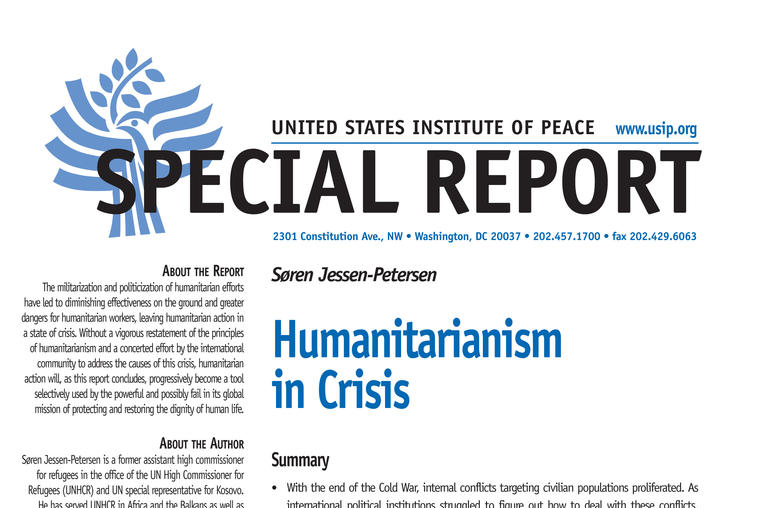
Humanitarianism in Crisis
The militarization and politicization of humanitarian efforts have led to diminishing effectiveness on the ground and greater dangers for humanitarian workers, leaving humanitarian action in a state of crisis.
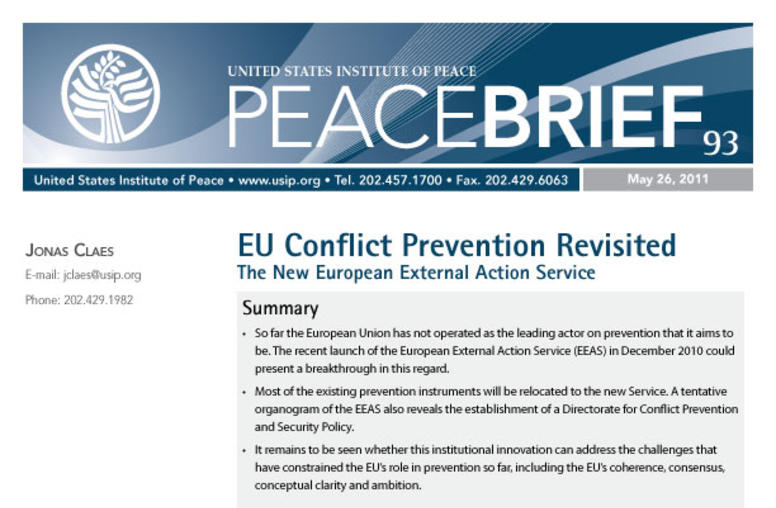
EU Conflict Prevention Revisited
This Peace Brief follows a series of interviews conducted with senior EU officials in Brussels, and examines the anticipated impact of the new European External Action Service on EU prevention activities.
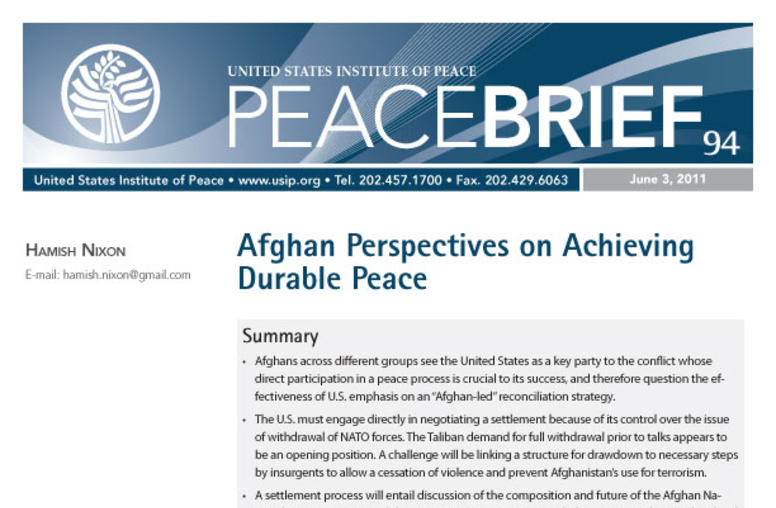
Afghan Perspectives on Achieving Durable Peace
This brief outlines key findings from the first phase of research on Afghan stakeholder views on the conflict. The author worked in Afghanistan for the World Bank and the Afghanistan Research and Evaluation Unit from 2005-2010, and has researched governance and peace processes in Southeast Asia, Central America and Afghanistan.
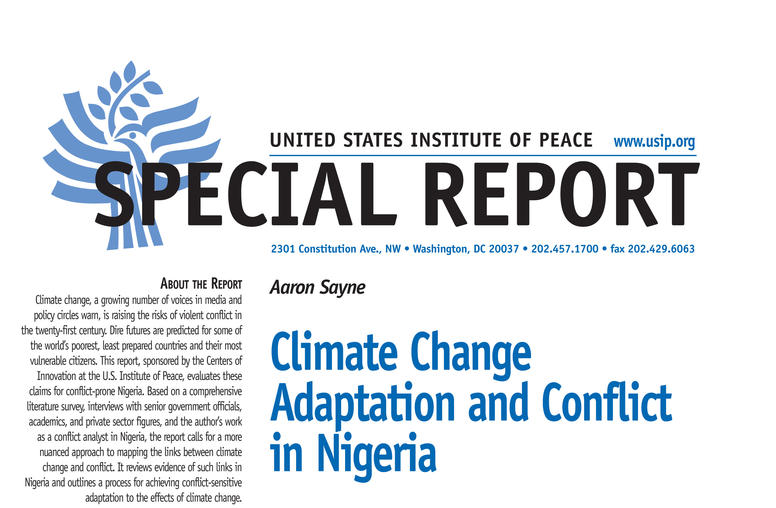
Climate Change Adaptation and Conflict in Nigeria
Climate change, a growing number of voices in media and policy circles warn, is raising the risks of violent conflict in the twenty-first century. Dire futures are predicted for some of the world’s poorest, least prepared countries and their most vulnerable citizens. This report, sponsored by the Centers of Innovation at the U.S. Institute of Peace, evaluates these claims for conflict-prone Nigeria.
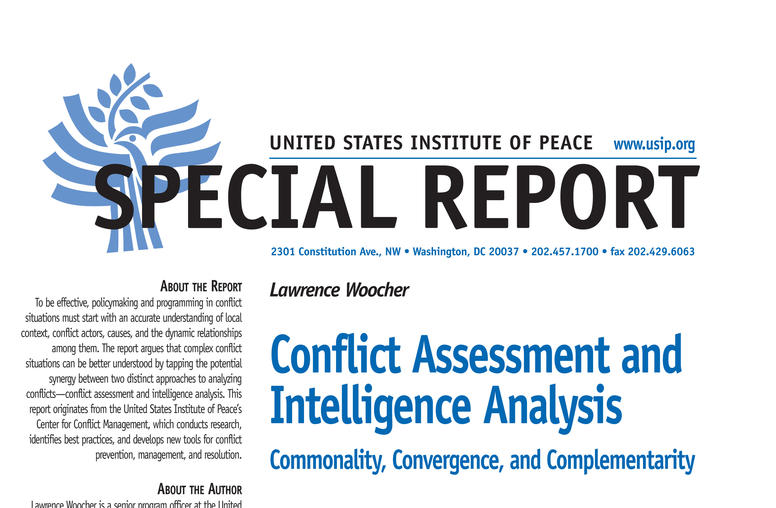
Conflict Assessment and Intelligence Analysis
To be effective, policymaking and programming in conflict situations must start with an accurate understanding of local context, conflict actors, causes, and the dynamic relationships among them. The report argues that complex conflict situations can be better understood by tapping the potential synergy between two distinct approaches to analyzing conflicts—conflict assessment and intelligence analysis. This report originates from the United States Institute of Peace’s Center for Conflict Man...
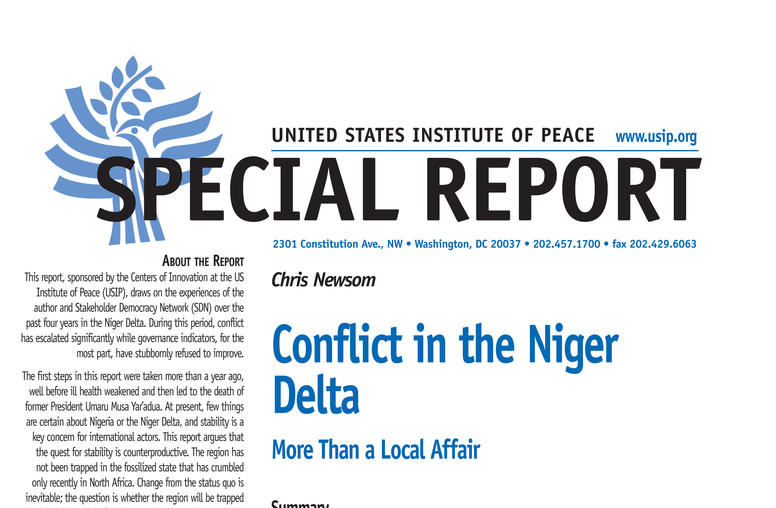
Conflict in the Niger Delta
This report, sponsored by the Centers of Innovation at the US Institute of Peace (USIP), draws on the experiences of the author and Stakeholder Democracy Network (SDN) over the past four years in the Niger Delta. During this period, conflict has escalated significantly while governance indicators, for the most part, have stubbornly refused to improve.
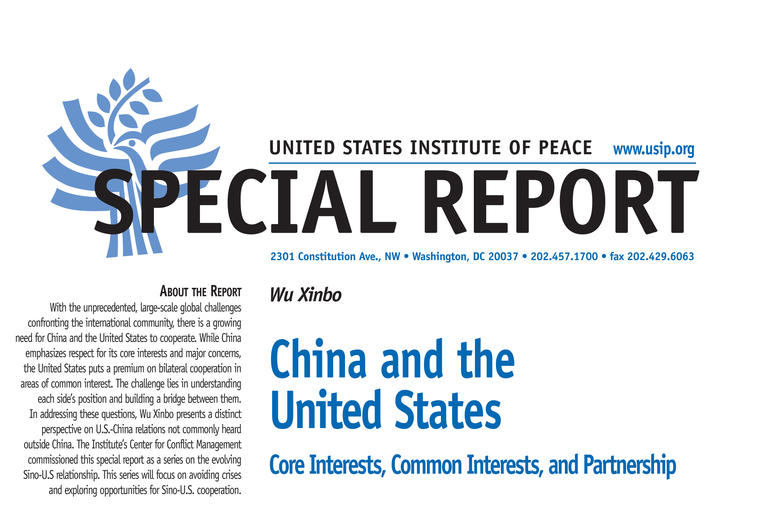
China and the United States
While China continues to call for US respect of its core interests as a means toward greater cooperation on the Korean Peninsula and global climate change, the United States prefers an immediate focus on cooperating on those common concerns. A leading Chinese scholar examines how these differences can be bridged to build a genuine partnership.
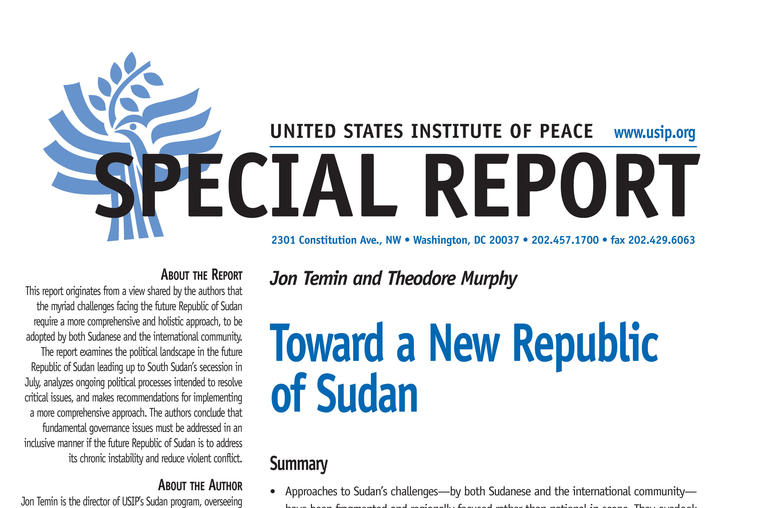
Toward a New Republic of Sudan
The exclusionary governance that led South Sudan to secede from the rest of Sudan continues to bedevil the government of the new Republic of Sudan to the north. Both the July secession and the Arab Spring could provide the impetus the ruling party needs to lead national governance reforms and to engage its diverse citizenry in making a new constitution.
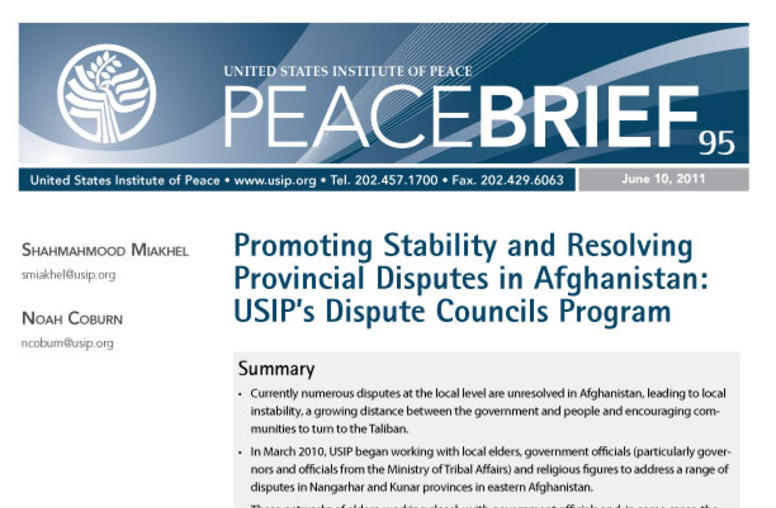
Promoting Stability and Resolving Provincial Disputes in Afghanistan
Currently numerous disputes at the local level are unresolved in Afghanistan, leading to local instability, a growing distance between the government and people and encouraging communities to turn to the Taliban. In March 2010, USIP began working with local elders, government officials (particularly governors and officials from the Ministry of Tribal Affairs) and religious figures to address a range of disputes in Nangarhar and Kunar provinces in eastern Afghanistan.